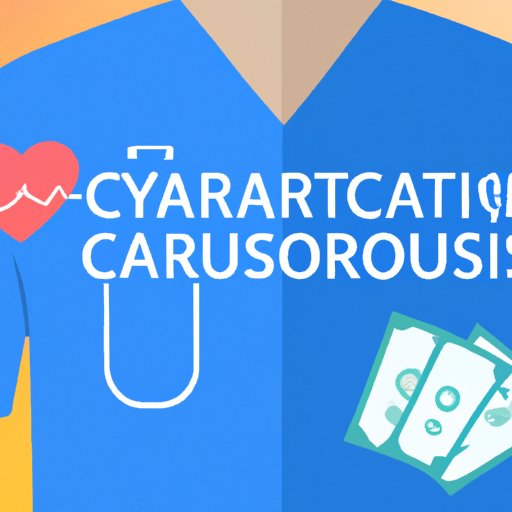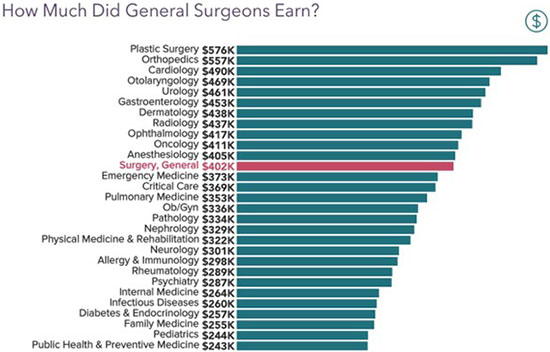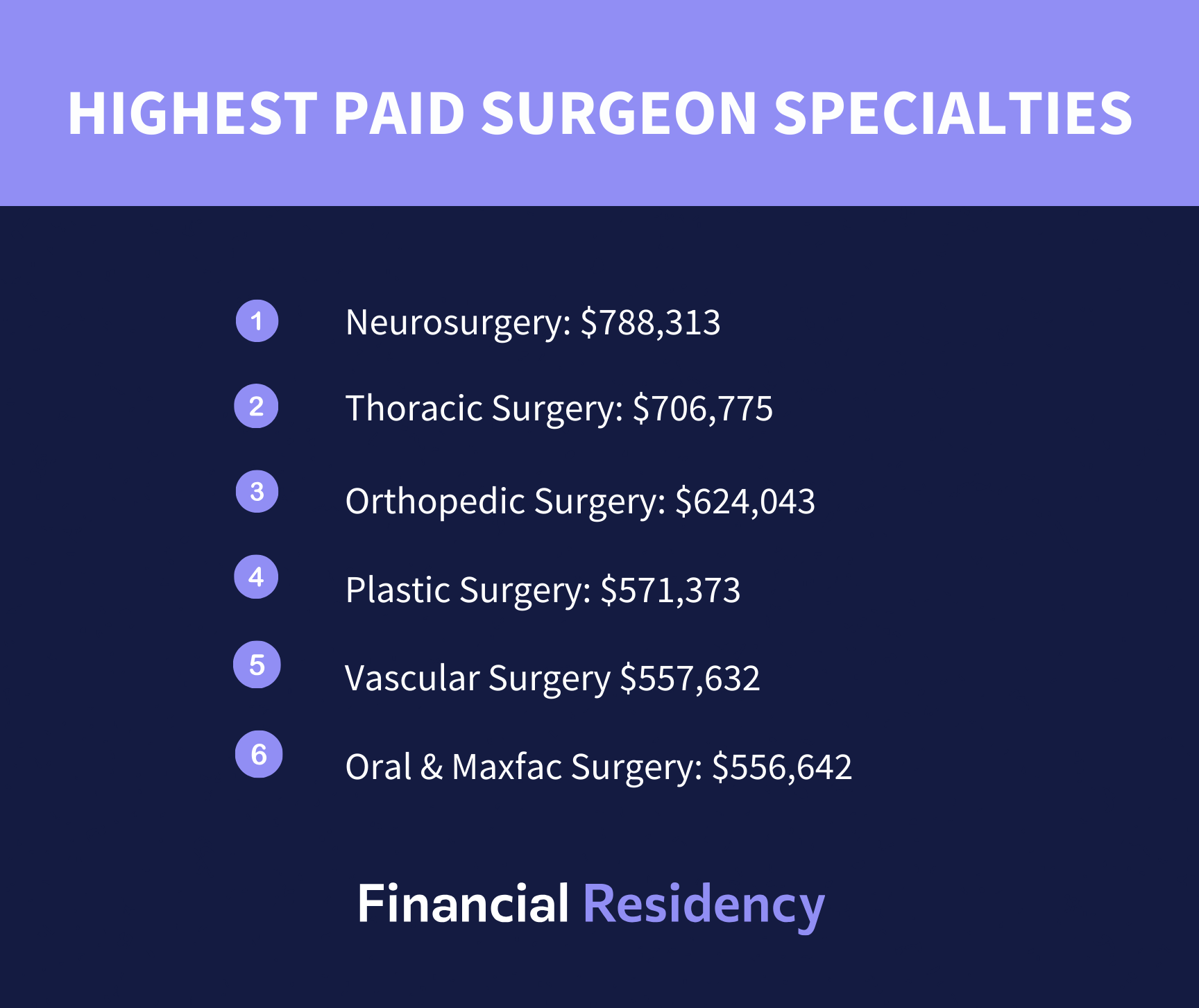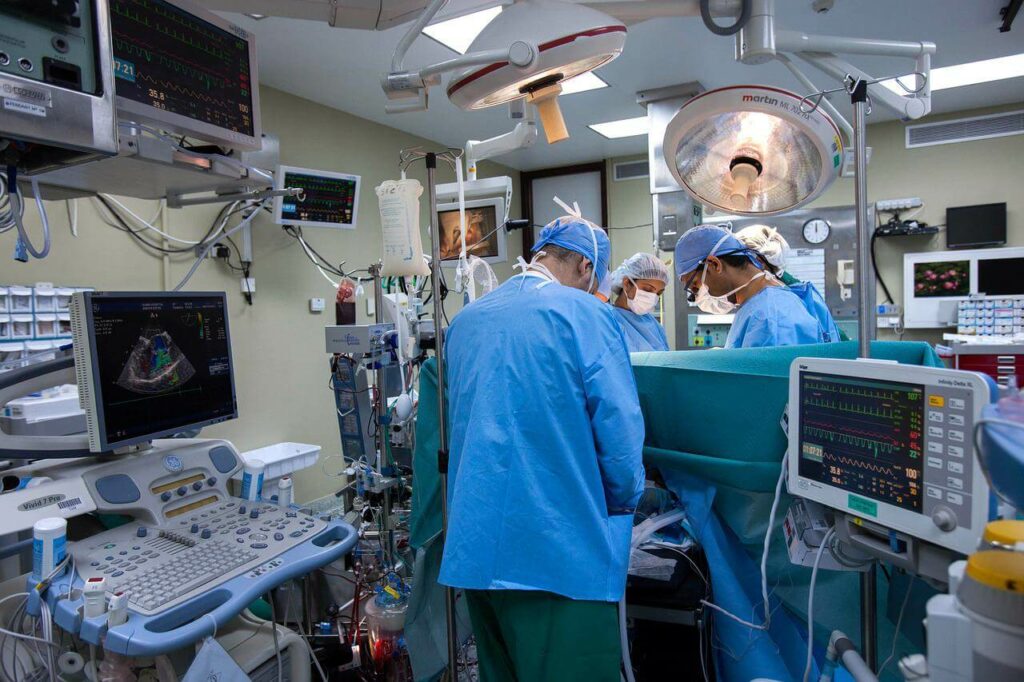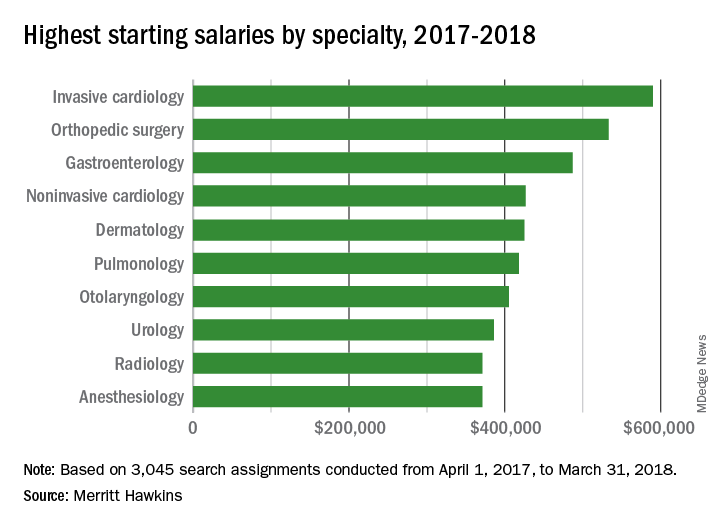How Much Does Cardiothoracic Surgeon Make

The soft hum of the heart-lung machine filled the operating room, a steady rhythm accompanying the delicate dance of gloved hands. Dr. Anya Sharma, her brow furrowed in concentration, meticulously repaired a mitral valve, each stitch a testament to years of rigorous training. Outside, the world hurried on, oblivious to the life-altering work unfolding within these sterile walls. But beyond the intense focus and dedication, a question lingers in the minds of many considering this demanding path: How much does a cardiothoracic surgeon actually make?
Cardiothoracic surgery, one of the most complex and demanding medical specialties, understandably commands a significant salary. However, pinning down an exact figure is challenging, as earnings are influenced by factors such as experience, location, type of practice (private vs. hospital-employed), and subspecialization. This article explores the landscape of cardiothoracic surgeon compensation, providing a comprehensive overview of the financial realities and the variables that shape their earning potential.
The Earning Potential: A Deep Dive
Several reputable sources offer insights into the salary ranges for cardiothoracic surgeons. According to the Medical Group Management Association (MGMA), a leading organization for healthcare professionals, the median compensation for cardiothoracic surgeons in the United States in 2023 was around $650,000.
Salary.com, another frequently cited source, provides a similar estimate, placing the median salary for cardiothoracic surgeons in a range between $550,000 and $750,000, with the potential for higher earnings depending on specific circumstances.
It’s important to remember that these are median figures. The actual compensation can vary widely. Surgeons with extensive experience, specialized skills, or those practicing in high-demand areas often command salaries well above the median.
Factors Influencing Salary
Several key factors play a significant role in determining a cardiothoracic surgeon's salary. Experience is undoubtedly a major driver. A surgeon just starting their career will naturally earn less than one with 15 or 20 years of experience under their belt.
Location also matters significantly. Surgeons practicing in metropolitan areas or regions with a high cost of living, such as California or New York, typically earn more than those in rural areas or states with a lower cost of living.
The type of practice setting also influences compensation. Surgeons working in private practice often have the potential to earn more than those employed by hospitals or academic institutions, though they also bear the responsibility of managing their own business expenses. Academic positions, while potentially lower in direct salary, may offer benefits such as research opportunities and teaching responsibilities.
Subspecialization within cardiothoracic surgery can also impact earnings. Surgeons specializing in areas like pediatric cardiac surgery or heart transplantation, which require highly specialized skills and training, may command higher salaries due to the increased demand and limited number of specialists.
The complexity and volume of cases a surgeon handles also plays a critical role. Surgeons who perform a high volume of complex procedures, such as aortic aneurysm repairs or minimally invasive cardiac surgery, often generate more revenue for their practice or hospital, which can translate into higher compensation.
The Path to Becoming a Cardiothoracic Surgeon
The road to becoming a cardiothoracic surgeon is long and demanding, requiring years of dedicated study and training. It begins with a four-year bachelor's degree, followed by four years of medical school.
After medical school, aspiring cardiothoracic surgeons must complete a five- to seven-year general surgery residency. This residency provides a broad foundation in surgical principles and techniques.
Following the general surgery residency, surgeons must complete a two- to three-year cardiothoracic surgery fellowship. This fellowship provides specialized training in the diagnosis and treatment of diseases affecting the heart, lungs, and chest.
The entire process, from undergraduate studies to the completion of the fellowship, typically takes 10 to 14 years. The investment of time and effort is substantial, reflecting the complexity and critical nature of the work.
The Cost of Education
The cost of medical education is a significant consideration for aspiring surgeons. Tuition fees, living expenses, and other associated costs can accumulate a substantial amount of debt.
The Association of American Medical Colleges (AAMC) reports that the median debt for medical school graduates in 2023 was over $200,000. This debt burden can influence career choices and financial planning for years to come.
While the earning potential of a cardiothoracic surgeon is high, it's essential to consider the financial investment required to reach that point. Loan repayment programs and other financial assistance options can help alleviate some of the burden.
Beyond the Salary: Intangible Rewards
While the financial rewards of cardiothoracic surgery are undeniable, the intangible benefits are equally significant. The ability to save lives and improve the quality of life for patients is a powerful motivator.
Cardiothoracic surgeons often work with patients facing life-threatening conditions, and the impact of their work can be profound. Witnessing a patient recover and regain their health after a successful surgery is an incredibly rewarding experience.
The intellectual challenge of cardiothoracic surgery is also a significant draw for many. The field is constantly evolving, with new technologies and techniques emerging regularly. Surgeons must be lifelong learners, constantly updating their knowledge and skills.
Moreover, cardiothoracic surgery offers opportunities for innovation and research. Many surgeons are actively involved in developing new surgical techniques and technologies, contributing to the advancement of the field.
The combination of financial rewards, intellectual stimulation, and the opportunity to make a tangible difference in people's lives makes cardiothoracic surgery a compelling career choice for many aspiring physicians. Dr. Emily Carter, a renowned cardiac surgeon, once said, "It's not just about the money; it's about the profound satisfaction of knowing you've given someone a second chance at life."
The Future of Cardiothoracic Surgery Compensation
The healthcare landscape is constantly evolving, and the compensation for cardiothoracic surgeons is likely to be affected by these changes. Factors such as healthcare reform, changes in reimbursement models, and the increasing use of technology are all likely to play a role.
As healthcare shifts towards value-based care, where providers are rewarded for quality outcomes rather than simply the volume of services, surgeons may need to adapt their practices to demonstrate their value. This could involve focusing on improving patient outcomes, reducing complications, and enhancing patient satisfaction.
The increasing use of technology, such as robotic surgery and minimally invasive techniques, is also likely to impact the field. Surgeons who embrace these technologies and develop expertise in these areas may be in greater demand and potentially command higher salaries.
Despite these changes, the demand for cardiothoracic surgeons is expected to remain strong in the coming years, driven by an aging population and the increasing prevalence of cardiovascular disease. This suggests that the earning potential for cardiothoracic surgeons will remain competitive.
In conclusion, while the exact salary of a cardiothoracic surgeon varies based on numerous factors, the earning potential is substantial, reflecting the demanding nature of the specialty and the critical skills required. However, the true rewards of this profession extend far beyond the financial realm, encompassing the profound satisfaction of saving lives and making a lasting impact on the lives of patients.

